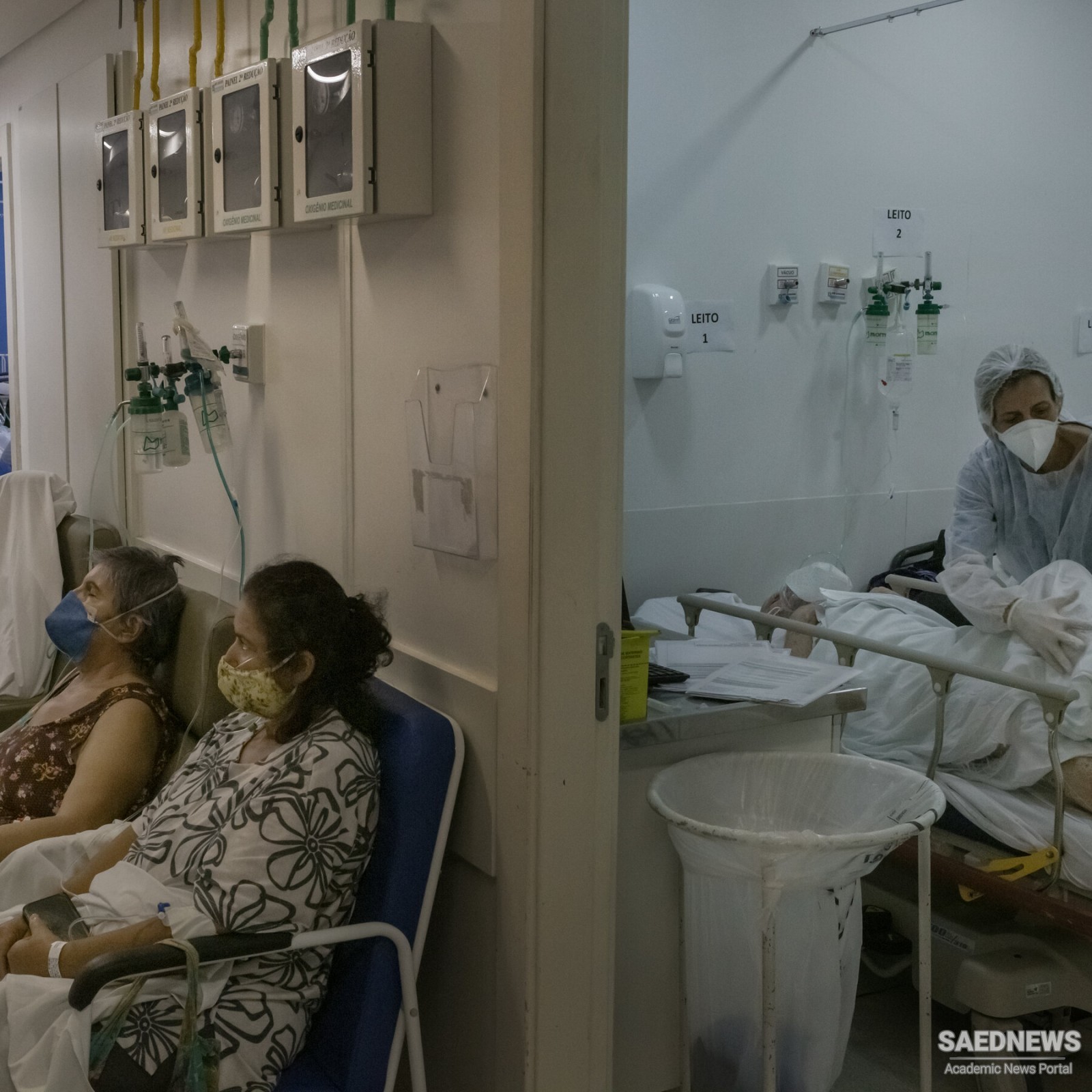Sao Paulo, Brazil, SAEDNEWS: Ana Maria Nogueira adds one bacon-flavoured seasoning cube to the pot of rice simmering on the stove. In the wooden shack that she and her husband, Eraldo, who is disabled, call home in Jardim Keralux, a poor neighbourhood in Sao Paulo’s sprawling eastern zone, the coronavirus that has killed more than 351,000 Brazilians seems like a faraway problem.
The couple has more pressing priorities. “This year, we’re going hungry,” Ana, 56, told Al Jazeera.
As Brazil’s COVID-19 crisis gets worse by the week with record-high death tolls, packed hospitals and climbing caseloads, another crisis is unfolding: hunger and food insecurity.
Ana and Eraldo are two of 19 million Brazilians to have gone hungry during the pandemic, according to a new study, while nearly 117 million – more than half the population – live with some level of food insecurity.
Experts point to high unemployment exacerbated by the coronavirus, cuts and reductions to social programmes and sharp price increases on basic food staples as some of the reasons behind the problem.
“It’s a tragedy that was totally foreseeable,” said Renato Maluf, president of the Brazilian Food Sovereignty and Nutritional Security Research Network (PENSSAN Network) that coordinated the study, conducted in December when Brazilians were still receiving emergency coronavirus cash payments from the government.
“Certainly things have gotten worse since then,” Maluf said.
‘Tragic combination’
Brazil was taken off of the United Nation’s world hunger map in 2014 after years of concerted effort to reduce hunger through successful social programmes and public policies.
The country’s then-President Luiz Inacio Lula da Silva, who now appears to be making a political comeback, famously said at his 2003 swearing-in ceremony that, “as long as there is a Brazilian brother or sister going hungry we will have reason to be ashamed”.
But in 2015, recession and political crisis struck. Austerity measures were introduced and unemployment soared. Three years later, before presidential elections that far-right populist firebrand Jair Bolsonaro would go on to win, extreme poverty and hunger were already raising alarms.
“The situation has been getting worse in recent years,” said Marcelo Neri, an economist at Brazil’s Getulio Vargas Foundation. “Definitely food insecurity has grown in 2021.”
Alexandre Padilha, a congressman with the left-wing Workers’ Party and a former health minister, said rising hunger and food insecurity was especially troubling during the COVID-19 pandemic as people pushed to find work or food were exposing themselves to the virus.
They could also be more vulnerable to contracting COVID-19 because their immune systems are weakened due to a lack of sustenance, Padilha said.
“It’s a tragic combination that reinforces the worst human tragedy in the history of Brazil,” he told Al Jazeera. “It compromises future generations for our country.”
Price increases
Brazil is a major food exporter and Sao Paulo is South America’s wealthiest city. But for citizens living in the city’s impoverished periphery neighbourhoods like Jardim Keralux, eating three nutritious meals a day is increasingly an unaffordable luxury.
The situation is even worse in rural areas. “A poor person in the city can go out in the street and ask for food, a poor rural person can’t,” said Maluf at the PENSSAN Network.
Ana collects and sells recyclable goods three times a week, but she is lucky if she makes $3.50 (BR$20) a day. Meanwhile, the 5kg bag of rice she currently has to feed herself and her husband – and that was a donation from a local Catholic church – costs $4.40 (BR$25) at the local supermarket.
Basic food prices have rocketed during the pandemic, which has had a disproportionate effect on poorer citizens. According to the Brazilian Institute of Geography and Statistics, in one year, the price of a kilogramme of rice shot up by nearly 70 percent, while black beans, potatoes, red meat, milk and soybean oil rose by 51, 47, 30, 20 and 87 percent, respectively.
The price of bottles of cooking gas commonly used in Brazil rose by 20 percent in the past year, the institute also reported.
Edilson Lino Bastos, vice-president of the Keralux Institute, a local neighbourhood association, said he is inundated with requests for food help. “The demand is always growing and there is never enough,” he said.
Bastos told Al Jazeera the association received 1,000 food packages from one of Brazil’s biggest insurance companies at the start of the pandemic. Now, those donations have dried up.
“Poorer Brazilians count on solidarity and the help of friends and family,” said Neri, the economist. “The problem is now people are tired… Resources are running out.” (Source: AlJazeera)


 ‘Out of control’: Brazil’s COVID surge sparks regional fears
‘Out of control’: Brazil’s COVID surge sparks regional fears














































